Why I Hate Articulation Therapy
I have a confession to make. I really don’t like articulation therapy. Whenever possible, I try to pawn it off onto my SLP-A or student intern. Why do I hate it? Let me count the ways…
1. Boring. Drill and kill may be an effective way to learn motor muscle memory, but (at least from the SLP’s perspective) it is just dull.
2. Competition. Kids often adore playing games while they are doing articulation. I’ve hidden away all of my board games this year, however, because I find that they barely get any repetitions when they are distracted with a game. We spend half of the time choosing what color player each student is going to be, and the other half of the time arguing about whether someone is cheating. It just isn’t worth it.
3. Different levels/different sounds. Occasionally, I have a group of students all working on the same sound at the same level. It is a miracle and I can do so many fun reading, writing, and other activities with them. The vast majority of the time, however, every student is working on a different sound at a different level and it is impossible to find a common ground.
4. Lack of carryover. My students just don’t practice outside of the speech room. Heck, they don’t even practice as we’re walking back to their classroom! I give them homework every week and “catch” them in the hall, but the articulation outside of the room just isn’t happening. This makes me feel like my job isn’t working. And then I’m on a downward spiral of, “What’s the point…”
5. Too much prep work. If I want to be more creative than just pulling out a board game, there seems to be a ton of prep-work. For example, I could print, cut, laminate, and cut out 50 spring /r/ cards to use during 2 therapy sessions, but who really has the time for that?! I could also attempt to do 4 different crafts, one for each student, focusing on each student’s target sound. But again, I don’t have time for that!
6. Non-challenging words. The next time that my fifth grader pulls the word “rainbow” out of the card pile, I am probably going to scream. The students at my school are primarily low-income, non-English speaking, and poor test takers. These kids do not need to practice “rain” or “ribbon” 100x per day. They need vocabulary that will challenge them such as “reign” and “rhythm”!
7. Lack of self-awareness. Some of those little guys (or the older guys working on /r/), just can’t hear the difference very well. So as much as you praise the correct production, they just can’t hear it and reproduce it over and over.
8. Lack of motivation. We’re getting personal here. One of my best friend’s has a son who is eleven year’s old. He has a terrible /r/. He’s been in speech since early intervention and he’s mastered every sound except /r/. And he just. doesn’t. care. And it drives me nuts because he will come over for a sleepover and I just want to yell, “Get your /r/s in check!”. Since he is interested in theater, I hope that he will start to care soon, but until he does, no amount of weekly speech therapy is going to make a big difference.
9. Planning. Sometimes, I just want a curriculum! I don’t want to do the same thing every single therapy session, but I also don’t want to plan and prep something new new every session. I kinda want to be lazy and have it all copied and ready to go a month in advance!
So, is there a solution?
Maybe. Maybe not. My goal is to “trick” the kids into many repetitions without competition and with higher level vocabulary or thinking skills.
Here are some ways I’ve tried to do that:
1. Crafts. Yep, good old arts and crafts. Yesterday, for example, I made ladybug crafts with an articulation group and used a whole puncher to cut out spots. I would only punch out a spot when one student said “black spot”. I think I got 50 productions out of him in about 3 minutes!
Along the crafty line, I just created Mini Speech Club. This “curriculum” is predictable but interactive. The kids get to do a hands-on activity during every session with their speech sounds. There is a requirement (with signature proof!) that 4 people listen to the child using their good sounds. The 8 different activities repeat each month so that they students can get used to each activity.
2. Paper and pencil games. These could include Mad Libs, mazes, word searches, Sudoku, crosswords, or anything else that will get kids thinking, writing and talking (without the competition of board games).
I designed Speech Club ito incorporate many of these games. I’ve been using Speech Club for more than a year and can’t imagine my life without it! The premise is that kids need to practice their sounds 5 days per week both inside and outside of the speech room (signatures from people outside of the speech room required). There are 5 different activities per week: mad libs, tic-tac-toe, word search, thinking about words, riddle. These activities are fun both individually and while interacting with peers.
I’ve had a number of SLPs tell me that they are unable to meet with students 5 days/week but have had a lot of success using these worksheets as homework. In addition, I made sure to include a lot of higher level vocabulary so that all students are working on their vocabulary as well as their sounds.
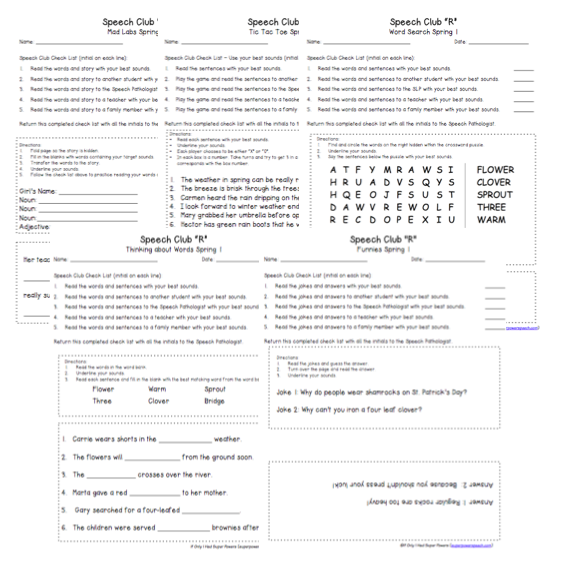 3. Books. I love to use books in the speech room because I know I am supporting core curriculum (and literacy!). It’s amazing how easily you can find articulation sounds within fun picture books. You can seek out books with tons of a particular sound, or just use great books and search for the sounds!
3. Books. I love to use books in the speech room because I know I am supporting core curriculum (and literacy!). It’s amazing how easily you can find articulation sounds within fun picture books. You can seek out books with tons of a particular sound, or just use great books and search for the sounds!
Almost all of my book units also include articulation cards. I use these articulation words for having kids practice while reading, as well as with vocabulary.
4. Riddles. Everyone loves riddles! I used to have a “riddle of the week” up on my speech door and gave students prizes (aka candy) when they could correctly answer and explain the joke. The negative part about jokes is that there is not a lot of repetition. On the positive side, however, the riddles are much more likely to foster carry-over as kids tell them to their friends and family.
I have put together a collection of riddles for articulation, however, I recently I have just used the ones already embedded in my Speech Club.
Here are MORE products and ideas from my colleagues on ways they keep articulation therapy fun!
1. Articulation Notebooks: Um… LOVE. These are not only adorable (and completely black and white) but they cover sooooo much! I’m thinking this bundle could easily get you through the entire year of therapy with art included in every session! I love that they can be glued in to a child’s very own speech notebook so the child has a sense of ownership when they come to speech!
2. Articulation Menus: I love the idea that students can practice pretend play ordering at a restaurant, while using their own “custom” menu for their sound! If you added a little bit of pretend food items, that would be perfect!
3. Let’s Race Articulation Centers: Using fun centers that are non-competitive and have each child focus on their own sound!
4. Roll and Tell an Articulation Story: I have to admit that I’ve had a few rockin’ speech sessions involving story telling with target sounds! Especially with those harder to motivate older students!
5. On the Right Track: Take it back to basics here and use a cute theme! This activity involving saying the word and having the student listen to the word carefully to determine if it is an initial, medial, or final sound. Plus, who doesn’t love trains!
6. Minute to Win It Articulation: Jenna at Speech Room News is the queen of non-traditional articulation therapy ideas. I would suggest to check them all out. This one in particular just screams “SPEECH ROCKS!”.
7. Reader’s Theater for Articulation Speech Therapy: I have totally done this before years ago with a fun group of fourth graders. We put on a whole play with props and an audience and everything. I based it off of a play that contained many of my students’ target sounds, but I adore that these plays are already jammed packed full of sounds!
I know there are soooo many more ideas out there that I couldn’t possibly list them all! What non-traditional articulation methods do you love to use?
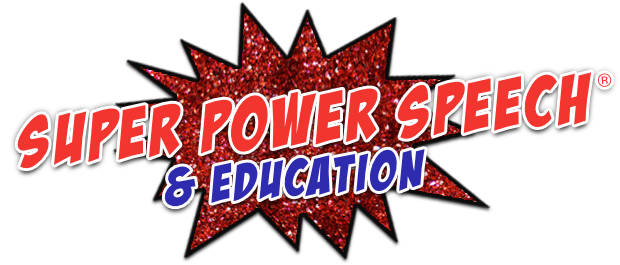
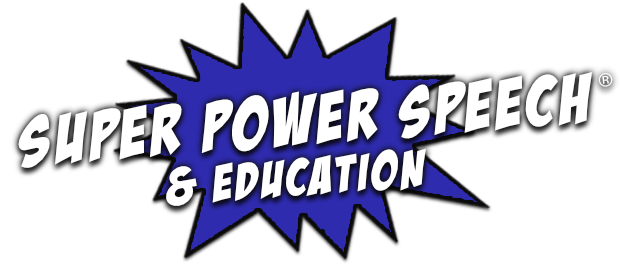
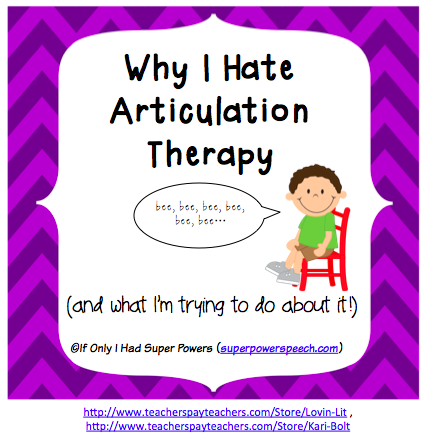
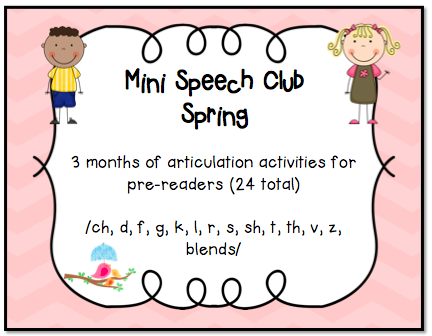
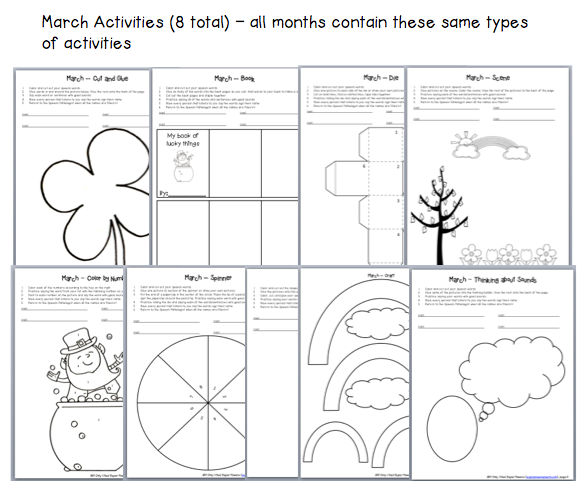
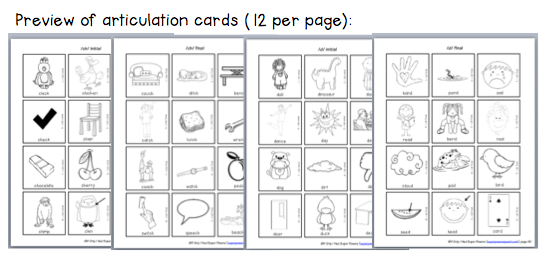
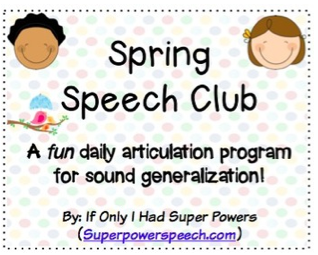
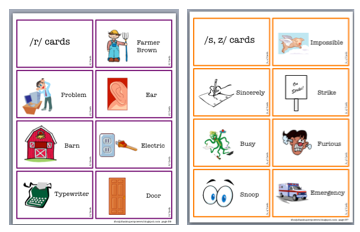
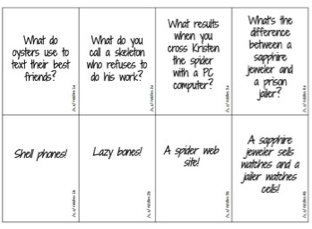
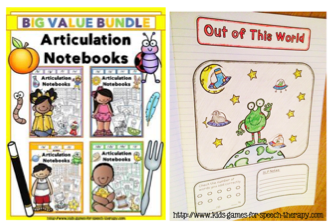
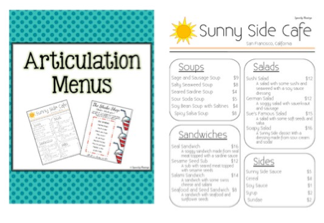
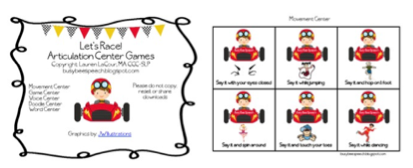
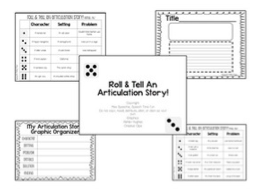
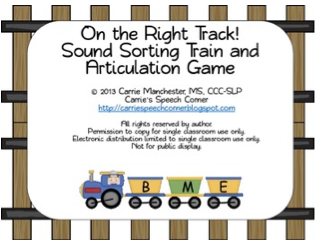
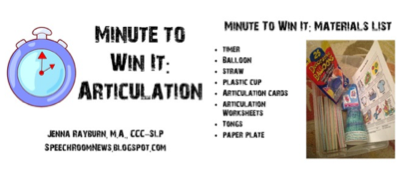
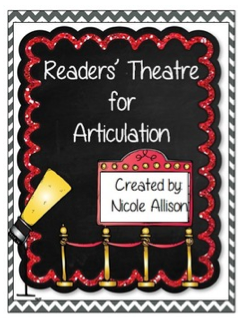

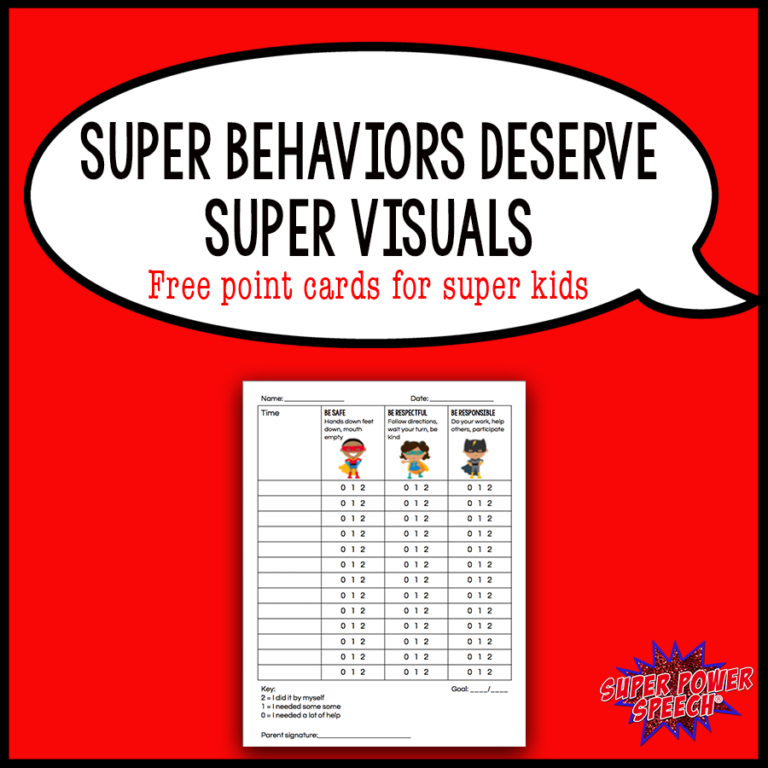

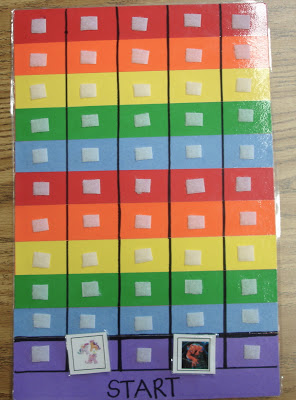

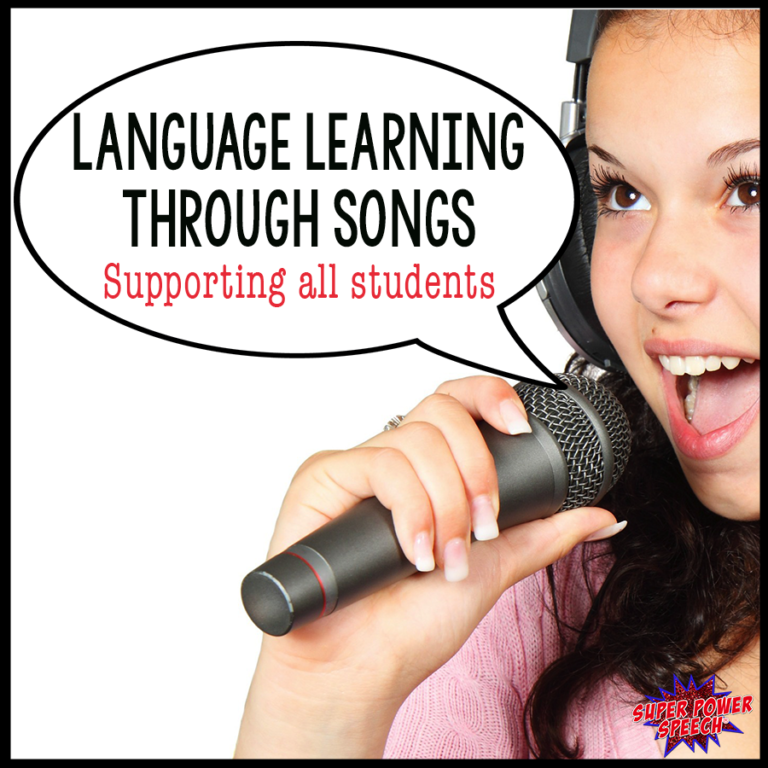
I love these ideas! I just added some more to my wish list! And…totally agree with you that I get very bored, very quickly with articulation therapy!
This.is.awesome! Great post with fresh ideas!!! Thank you!
WOW!! It took guts to write that! While reading I could hear myself! I just purchased the articulation notebooks over the weekend and I use some of the other products as well. For the older kids I like Erik X. Raj’s apps. They are quirky and engaging for the big guys. I also have started using SATPAC. Ten minutes a week with hundreds of reps. Quick and effective. I’m having very good results. I’m sort of tired of cajoling kids and parents into seeing the importance of good articulation and dedicated practice.
I completely and utterly agree 100%. Articulation therapy is draining the life out of me right now!! My kids don’t practice, most don’t have “someone” at home to check in with, most have fairly significant language issues in addition to artic needs, etc.
Great ideas! I don’t do a lot of crafts, because I figure it’s a waste of money to do it just to have it end up in the trash. Plus, I don’t have the time! There’s too many things that need to be done & not enough time to do it!
Ha! I’m sure we can all relate to your feelings about artic therapy! I enjoy using construction toys – blocks, Legos, Lincoln Logs, marble runs, race track pieces, etc. for artic therapy at the word level. Each child has to use his sound correctly in 2 or 3 words to receive 1 Lego, block, whatever. I also keep a box of paper towel tubes, plastic lids, rubber bands, etc. for kids working on artic at the sentence level. They pick one item, talk about it, once they have used a certain number of their sounds correctly, they keep the item and select something new. They can build whatever they want with the recycled objects. I have also found books that give directions for making items out of recycled objects. They can take turns reading the directions to each other. At my last assignment, the school provided me with an iPad. I found that many children made progress with carryover if I took the for 5 to10 minutes a day, sat out in the hall or in a nearby empty room, and just let them drill with the iPad. For some reason, they enjoyed this more than drilling with artic cards. Either way, I was shocked by their level of success with carryover once I started doing these simple drills.
I second your frustration! I’m currently in a position where a majority of my caseload is articulation. I tried some new things this year to motivate them to practice, and it worked with some and not all. Some parents look at me in IEP meetings with a look that says, “When are you going to get my kid out of speech?!” Frustrating! I look forward to exploring your ideas!
I don’t get a lot of help from parents, but I work with teachers to assign “sound buddies” in the classroom with students 1st grade and older for students who can discriminate their own correct and incorrect productions. Just having someone else drill with them helps motivate them to do it. After so many days of practice outside of the speech room, I issue lunch invitations to my student and his buddy, during which we eat and play some type of articulation game. That accountability to a peer also helps immensely with carry-over!